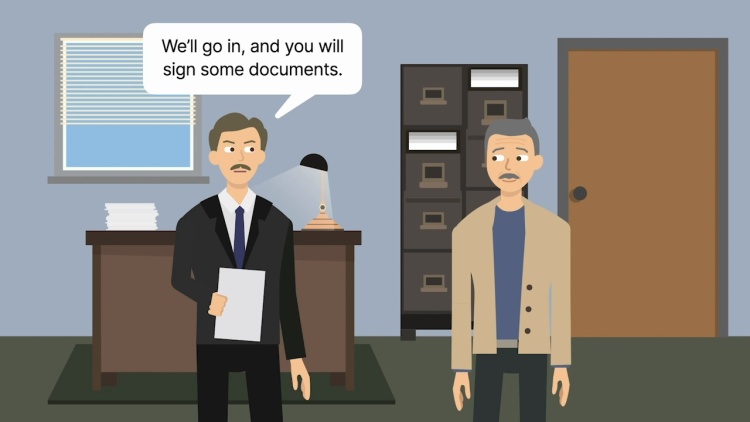Ryan v. Weiner
Delaware Court of Chancery
610 A.2d 1377 (1992)
- Written by Jamie Milne, JD
Facts
Robert Ryan (plaintiff) was a 69-year-old retired laborer with a ninth-grade education. In 1971, Ryan and his wife purchased a home for $8,600 using a loan secured by a mortgage. After making payments for 12 years, Ryan fell into arrears. The mortgage lender instituted foreclosure proceedings and obtained a default judgment against Ryan. A sheriff’s sale was scheduled for June 1984. The fair market value of Ryan’s house was $19,800, and the balance of the mortgage was $7,800, meaning that Ryan had approximately $12,000 in equity. Norman Weiner (defendant), a licensed real estate broker, went to Ryan’s home unsolicited in May 1984. Ryan believed that Weiner was offering to lend him money to pay off his arrears, with the loan to be secured by the house. Early the next morning, Weiner took Ryan to Weiner’s lawyer to sign documents. The documents were not explained to Ryan, and Ryan was not advised of the right to seek legal advice. Ryan believed he was signing loan documents, but in fact, he signed a deed transferring his house to Weiner outright. The deed stated that Ryan received $7,000 in consideration, but Weiner never gave Ryan any cash, nor did Weiner pay off the outstanding mortgage or satisfy the default judgment against Ryan. Thus, Weiner obtained ownership of Ryan’s house, while Ryan received nothing of financial value and remained personally liable for the mortgage. Ryan remained in the home as a tenant, paying Weiner monthly rent. Weiner made the monthly mortgage payments. The rent was initially similar to the mortgage payments. However, Weiner raised the rent substantially over seven years, while the mortgage payments increased only slightly. By May 1991, Ryan believed he had paid Weiner more than the total of the outstanding mortgage and the amount of Weiner’s so-called loan. Ryan therefore stopped making payments. Weiner commenced a summary proceeding in the justice-of-peace court to evict Ryan. That court stayed the proceeding so the Delaware Court of Chancery could first determine whether the deed to Weiner should be canceled.
Rule of Law
Issue
Holding and Reasoning (Allen, J.)
What to do next…
Here's why 907,000 law students have relied on our case briefs:
- Written by law professors and practitioners, not other law students. 47,100 briefs, keyed to 996 casebooks. Top-notch customer support.
- The right amount of information, includes the facts, issues, rule of law, holding and reasoning, and any concurrences and dissents.
- Access in your classes, works on your mobile and tablet. Massive library of related video lessons and high quality multiple-choice questions.
- Easy to use, uniform format for every case brief. Written in plain English, not in legalese. Our briefs summarize and simplify; they don’t just repeat the court’s language.





